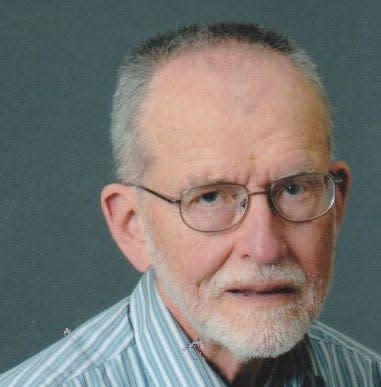Paul deLespinasse: As recently as 1986, solar energy was far too expensive
After the 1986 disaster at the Chernobyl atomic power station in the U.S.S.R., I took advantage of an opportunity to interest the major world powers in replacing conventional sources of electricity with solar energy.
My original proposal in 1972 had gone nowhere and had never gotten published. But 1986 seemed like an excellent time for a second try. Persistence can sometime pay!
By 1986 I was not only teaching political science at Adrian College, but I was also doing a class in the computer science department and teaching introductory Russian. I had used my computer skills to write software allowing me to type and print documents in both Russian and English. I used the Russian fonts to print up quizzes and tests for my students.

This was before foreign fonts were widely available in commercial editing software, as they are now.
My dual font software allowed me to write a letter in both Russian and English. In it, I advocated joint U.S.-Soviet consideration of an electrical cable connecting eastern and western hemispheres at the Bering Strait. This, I argued, could be the key link in a worldwide grid allowing nearly total reliance on solar energy without the need to store electricity for nighttime.
I mailed this letter to all 100 U.S. senators, President Ronald Reagan, leading U.S. newspapers, Soviet leader Mikhail Gorbachev, and the two leading Soviet newspapers, Pravda and Izvestia. (Pravda meant "truth" and Izvestia meant "news" and critics of the Soviet regime joked that in Pravda there was no news and in Izvestia there was no truth — only a slight exaggeration!)
I got replies from eight senators, six of whom said they were forwarding my letter to my Michigan senators. They were assuming I was seeking a favor rather than making a policy proposal. One exception was Sen. Richard Lugar (R-Indiana), who thanked me for an interesting idea and wished me luck in promoting it!
The other exception was from Donald Riegle Jr. (D-Michigan), who opined that it would be impossible to get the cooperation with the Soviets needed to get anywhere with my proposal.
This was right before Gorbachev's perestroika reforms broke fully out, paving the way for the end of the Cold War.
The only substantive reply was from the State Committee For Science and Technology in Moscow. Apparently, someone had forwarded my letter to them.
Their letter indicated they had understood exactly what I was advocating and had given it serious thought. Although they did not rule out future cooperation, for the moment here was their key criticism, which was totally valid:
"The achieved level of electrical energy from renewable solar energy so far has been extremely small, and the cost of producing electricity sufficiently high, that it makes it uneconomic to transmit the resulting energy long distances." (My translation.)
I had noted in my 1972 unpublished article that we could expect research into solar energy would produce large improvements and cost reductions, and this prediction has turned out to be right on target.
Solar energy, correctly stated to be uneconomic in 1986, has now, less than 40 years later, become the cheapest source of energy. And it is still getting cheaper, thanks to continuing research.
This is excellent luck because protecting the world's climate from carbon fuels is now urgent.
The only major obstacle to making full use of solar energy now is the local intermittency of sunlight. But at the same time as the cost of producing solar energy has plummeted, our ability to transmit it long distances has also greatly improved. A worldwide grid to avoid the need to store large amounts of electricity is now technically and economically possible.
The remaining obstacles to rapid construction of this grid are political. But hopefully, the economic benefits of the grid will prevail against NIMBY ("not in my backyard") fears, international conflicts, and anti-green spin-doctors financed by gas and oil interests.
— Paul F. deLespinasse is professor emeritus of political science and computer science at Adrian College. He can be reached at pdeles@proaxis.com.
This article originally appeared on The Holland Sentinel: Paul deLespinasse: As recently as 1986, solar energy was far too expensive
